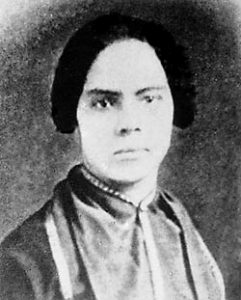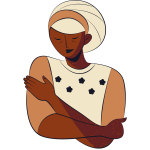About this Course
Self-Care, Mental Health, and Black Joy
Affirming Black Health and Wellness
“Caring for myself is not self-indulgence… it is self-preservation, and that is an act of political warfare”

— Audre Lorde
Our work in developing the EBAAR course was guided by the question, “how do you sustain yourself emotionally, mentally, and spiritually” in undergoing antiracist education and training, in particular for Black people in the face of global anti-Blackness? The resources shared in the EBAAR Pressbook offer various means, perspectives, and insights towards affirming Black health and wellness. The resources shared are by no means exhaustive, but reminders and invitations to cultivate the exploration.
(Adapted from Brady et al., (2020). Dismantling Anti-Black Racism in Schooling, Education, and Beyond: Resource Guide, The Centre for Integrative Anti-Racism Studies)
Black Joy as Resistance
The EBAAR course is designed with an “ethic of care” that combines a focus on learning with collaborative engagement that values community building, as well as student self-care and well-being. As part of this ethic of care, we concur with Wood (2021) who notes the importance of joy and laughter as resistant in the face of trauma and oppression, and Keeling (2014) who cites the need for cultural change and whole-community engagement to build well-being into campuses.
Importantly, self-care is infused throughout the EBAAR course as an anti-racist strategy, meaning we understand self-care as essential for sustaining collective efforts to address and resist anti-Black racism. Importantly, we reject popularized notions of self-care as grounded in individualistic and consumerist culture. Instead, we wish to acknowledge the Black feminist origins of self-care, for example, by highlighting the foundation of joy and rest-as-resistance in the work of Audre Lorde. Lorde’s conceptualization of self-care emphasized its inherently political nature that is often lost in contemporary mainstream discourse that equates it with face masks or bath bombs (Kim and Schalk, 2021). Kim and Schalk (2021) further critique the use of ‘self-care’ to optimize worker productivity, an individualized practice for which the onus is on the worker; rather, they envision self-care as a political act that understands Black, disabled, queer, and working-class people as deserving of care and of time for “self-renewal and the renewal of their communities” (p. 10). This is echoes by Tricia Hersey whose work with The Nap Ministry promotes the disruption of capitalism by connecting with the liberating power of rest (2022). Hersey’s work is centered in Black liberation and encourages those who are seeking justice and liberation to elevate rest as a form of resistance and a divine human right. Smith (2020) frames Black joy and Black love, especially in the midst of the COVID-19 pandemic, as a radical act of self-care and community building: “choosing joy in the face of oppression, violence, and global pandemonium is my act of resistance and self-care,” she writes (p. 71).
Each week we will be sharing a series of optional materials in sections titled “Celebrating Black Life,” which you are encouraged to explore. These are meant to introduce you to authors, artists, musicians, and scholars who have influenced Black life and culture in Canada. For example:

Mary Ann Shadd Cary (1823-1893)
Chatham, Ontario
NAC/C-29977
https://www.canada.ca/en/canadian-heritage/campaigns/black-history-month/black-canadians.html#s8
https://www.nps.gov/articles/000/the-places-of-mary-ann-shadd-cary.htm
Self-Care Reminders
 EBAAR students’ health and well-being is most important. It is essential for students to take care of themselves throughout this learning journey. Students are reminded of the importance of practicing self-care (i.e., getting enough sleep, laughing, taking breaks, and connecting with community and friends). We have included self-care reminders and strategies throughout the EBAAR course Pressbook. We encourage students to regularly engage with these practices and share your own with peers in the class.
EBAAR students’ health and well-being is most important. It is essential for students to take care of themselves throughout this learning journey. Students are reminded of the importance of practicing self-care (i.e., getting enough sleep, laughing, taking breaks, and connecting with community and friends). We have included self-care reminders and strategies throughout the EBAAR course Pressbook. We encourage students to regularly engage with these practices and share your own with peers in the class.
The content of the EBAAR course explores the prevalence of anti-Black racism in Canada, past and present. These discussions can be particularly traumatizing for students from racialized, marginalized, and equity deserving communities. Please prioritize your well-being when navigating this course.
Watch this brief video (4:24) by Shontel Cargill of Thriveworks (2020) describing racial trauma and self-care practices:
(Black) Mental Health Resources
This course explores difficult topics that can be emotionally activating for students, especially for Black and racialized students. It is important for students to take care of themselves throughout this course. If you experience difficulties and need help, it is important to reach out to someone.
Students may want to seek support from a Black counsellor. To this end we have assembled a list of mental health resources:
- National Mental Health Resource List:
- Black Youth Helpline
- National helpline for black youth and their families
- Black Health Alliance
- The Black Health Alliance is a community-led registered charity working to improve the health and well-being of Black communities in Canada.
- Across Boundaries
- Across Boundaries provides a dynamic range of mental health support and services and works within Anti-Racism/Anti-Black racism and Anti-Oppression frameworks. These frameworks address the negative impact of racism and discrimination on mental health and well-being.
- Caribbean African Canadian Social Services
- CAFCAN is a not-for-profit agency whose primary focus is on building and strengthening the service framework for African Canadians through the use of psycho-social intervention approaches.
- Find a Black Therapist
- Black Youth Helpline
Therapy for Black Girls
“Therapy for Black Girls is an online space dedicated to encouraging the mental wellness of Black women and girls.”
- Dr. Joy Harden Bradford
- Podcast: https://therapyforblackgirls.com/podcast/
- Website: https://therapyforblackgirls.com/
Transgender and Gender-Expansive Individuals
- Trans Life Line
- This support is staffed for trans people by trans people, and is completely divested from police services. No caller to their Canadian helpline will ever have emergency services called on them without explicit given consent.
Please note:
Mental health resources are for everyone. We have focused here on resources for those with specific marginalized identities, but additional mental health resources, including those at your institution, are listed in your EBAAR syllabus.

